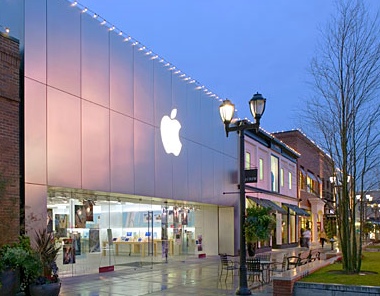
One of the new features in iOS 8 that Apple didn’t mention publicly last week is designed to stop companies from following iPhone users as they walk around in public. Frederic Jacobs, a software engineer at Open Whisper Systems, tweeted a slide from one of Apple’s sessions at WWDC last week that outlined how the company plans to foil tracking systems by using a random network identifier.
The new feature thwarts tracking systems that follow a phone’s Media Access Control (MAC) address – the unique identifier a device uses when it connects to a network – as it looks for available wireless networks.

By tracking those signals, it’s possible for companies to follow phones as people move around, without users even knowing that they’re being tracked in the first place.
Apple’s new solution prevents that form of tracking by providing a random address, which the system will interpret as a new device, rather than the same device moving around the store.
The change comes as privacy-conscious smartphone users have grown increasingly uneasy about MAC address-based tracking. The City of London removed 10 recycling bins that used the MAC addresses of nearby phones to track pedestrians’ movements last year following an outcry.
The change will impact other applications, too. Geary Eppley, vice president of engineering at Seattle-based retail mapping startup Point Inside, said some retailers use network-based solutions that rely on MAC address tracking to let users find themselves on a map of the store inside a retailer’s app. This change will make it harder for them to do so.
“Apple could have addressed the privacy issue without breaking these technologies but chose to take a more aggressive approach that reduces its competition in the indoor location space,” he said in an email to GeekWire.
Apple offers a competing tracking solution using iBeacons, which use Bluetooth Low Energy to connect with a store’s app. The company’s retail stores use iBeacons to send customers notifications advertising nearby products through the Apple Store app, and Apple is encouraging other companies to do the same thing. The major difference between the two systems is that tracking via iBeacons requires that users opt in through installing an app, rather than just being passively detected by a tracking system.
Under iOS 8, it will be easier for users to install those apps, as well. Apple’s update brings the ability to quickly access apps based on where a user is at any given time. That encouragement might be enough to make it easier for companies to reach their customers using iBeacons.
The problem with that system is that it only works for users of Apple devices. Android devices aren’t built to work with iBeacon technology. But Apple, which has the largest chunk of U.S. smartphone market share out of any manufacturer, could have significant sway over retailers looking to track their customers.
Josh Marti, the CEO of Seattle-based retail mapping startup Point Inside, said that the move won’t affect his company directly, but he’s disheartened by Apple’s decision to block one kind of wireless tracking technology.
“We support Apple’s concern for shopper privacy but it’s hard to not see Apple’s move as part of an ongoing trend towards a more closed system designed to stifle competition,” Marti said in an email to GeekWire. “What’s next? How many companies building technology and infrastructure on top of iBeacons will have their business models cut out from under them by future updates to iBeacon support in iOS?”



